Turning Compassion into Real-World Action
Our curriculum uses real-world service as a foundation for social-emotional and academic growth. By mindfully engaging in hands-on projects, students feel good and do good—developing confidence, empathy, and the skills to create lasting impact for themselves and their communities.
HUMANIZE
the social issue
Through bite-sized video lessons we help children mindfully unpack real-world social issues such as food insecurity in age-appropriate ways. Designed with the help of teachers and public health researchers, these lessons help elementary students have thought-provoking dialogue with their grown-ups to build social awareness and compassion for universal human struggles.
EXPERIENCE
hands-on service
Experiential service projects, designed with input from nonprofit partners, help students turn compassion into action. Students are empowered to have a meaningful impact on their local community, while strengthening self-efficacy and sense of agency along the way.
REFLECT
to Apply Learning
Using service as the central tenet, students engage in reflection activities throughout and connect their service learning experiences to their own context. From grade-level math and science extensions to destigmatizing social issues through peer discussions, students will reinforce academic and social-emotional learning applications — seeing how their actions make a real difference.
Our Core Social Causes
Our curriculum centers on social issues that are meaningful and accessible for elementary-aged students.
Food Insecurity & Nutrition
Peace & Wellness
Earth Care & Sustainability
Friendship & Connection

"Mindful Littles is a gem of an organization. It’s special because it’s not just about doing charity work, it’s how you do it.… Mindful Littles creates a joyful and grounded space with games, music and creativity. They remind us that our happiness and presence can profoundly affect those who are food or housing insecure."
— Parent Participant, Food Insecurity
Hear It Directly From the Experts
A discussion with one of our public health advisors and one of our nonprofit partners.


